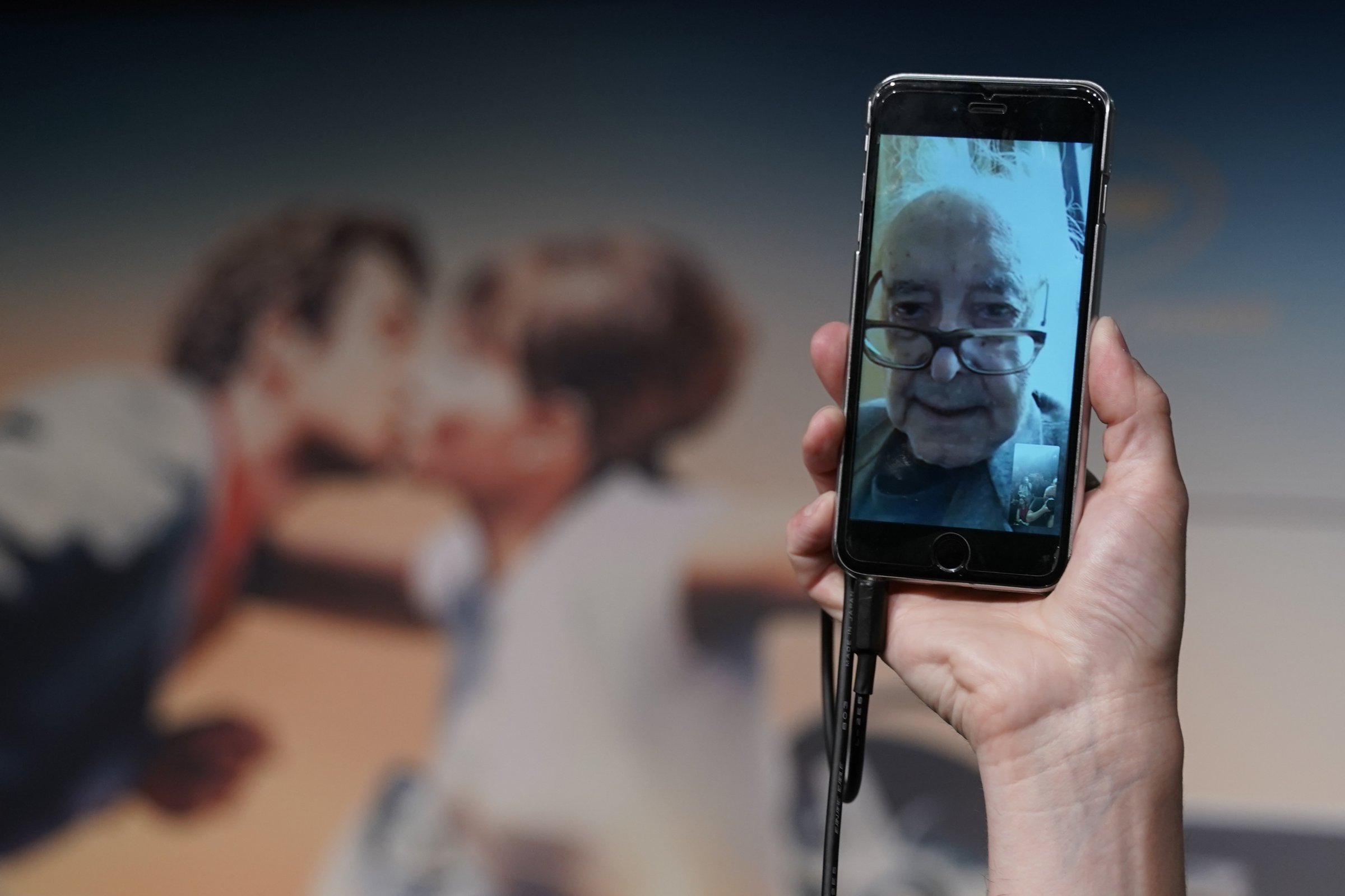
If you’ve ever wondered what Jean-Luc Godard’s Pinterest board would look like, The Image Book, playing in competition here in Cannes, will give you some idea. At this point, it feels wrong to call the 87-year-old Swiss-born Godard, perhaps the crankiest of all the fathers of the New Wave, a living legend. He’s really more of a folk myth. Cantankerous and reclusive, Godard speaks—when he makes any kind of public pronouncement at all—in a kind of growly semaphore. In 2014, when his marvelous 3D collage Goodbye to Language played the festival, he declined to appear in person to present the film, instead sending a cryptic yet compelling nearly nine-minute video letter of explanation (sort of) to then-outgoing festival president Gilles Jacob and festival director Thierry Fremaux. The video, which Jacob and Fremaux posted online, includes clips and sound bites from his own films, including Burgess Meredith, in the 1987 King Lear, telling Molly Ringwald, “I don’t have my heart in my mouth.” Then, in a video image, Godard himself appears, echoing those words: “I don’t have my heart in my mouth anymore either.”
The Image Book suggests that’s true, and perhaps whatever heart Godard has is in his eyes. (This time around, though, Godard did show up for his Cannes press conference, electronically, at least: He answered journalists’ questions in absentia, via FaceTime on an iPhone held aloft in the press room.) Disjointed and direct, exhilarating and soporific, cerebral and squirrelly: The Image Book is lots of contradictory things at once. And if it’s hard to understand exactly what Godard is trying to say in this brief scrapbook scamper—it clocks in at one hour, 25 minutes—just watching it is a strange, melancholy pleasure, and an open window into the world of things that worry its creator.
The Image Book is an assemblage of film clips, news footage and random, unidentifiable stuff, with mysterious title cards inserted seemingly at random—one reading “1. REMAKES” appears three times, or is it four? Here and there Godard’s voice itself is heard, craggy as the branches of an ancient tree, making doomy, mournful pronouncements. There is footage of terrorist atrocities that feels both jolting and yet also somehow safely remote: These are just things on a screen, not things happening before our eyes. And yet Godard may be asking us, and himself, if there’s any difference. Snippets of sound, words and music work mostly at odds with the images, not in concert with them. The effect is something like watching little kids unsuccessfully trying to work two jump-ropes at once, resulting in wriggly, out-of-sync parabolas.
That’s the intent: Godard wants to disorient in order to reorient, as he’s done for pretty much his whole career. He’s filled The Image Book with pictures that speak to him, or maybe just with pictures through which he’d like to speak, many of them culled from movies: Vertigo, Young Mr. Lincoln, Jean Cocteau’s Beauty and the Beast, the Weimar classic People on Sunday. Many of these images are digitally altered, some of them degraded so they resemble Xeroxes of Xeroxes of Xeroxes—perhaps Godard’s way of explaining that our memories process images differently from the way our eyes do.
Godard devotes a large chunk of the film to asserting how greatly the Arab world is misunderstood. But if the gist is clear, it’s still hard to know exactly what he’s saying. Godard is often classified as a political filmmaker, and his politics make their way into his films, of course. But he’s not a clear political thinker; his ideas are always blurry and muddled, if defiant, and that’s certainly the case here.
Yet it’s obvious that The Image Book is an expression of despair. Godard the cracked genius, old but still vital, and still very, very strange, has gone rummaging around in the jumble of his mind’s basement, and this is what he has come up with. This isn’t a warm film—it’s like a Chris Marker documentary-essay without soul. But we’ve always known that Godard is (mostly) not a warm filmmaker. With The Image Book, he’s teasing us, he’s condescending to us, he’s expressing his anger at how little we seem to care. This is what he thinks of us, though in return, we don’t know what to think of him. That, it seems, is exactly the way he wants it.
More Must-Reads from TIME
- Cybersecurity Experts Are Sounding the Alarm on DOGE
- Meet the 2025 Women of the Year
- The Harsh Truth About Disability Inclusion
- Why Do More Young Adults Have Cancer?
- Colman Domingo Leads With Radical Love
- How to Get Better at Doing Things Alone
- Michelle Zauner Stares Down the Darkness
Contact us at letters@time.com